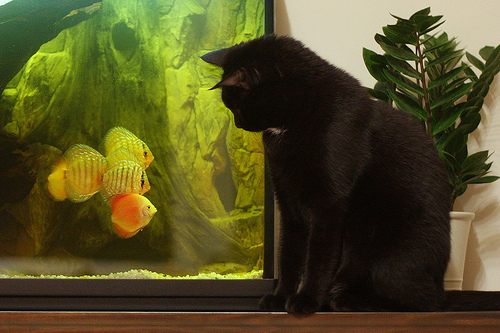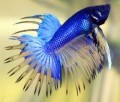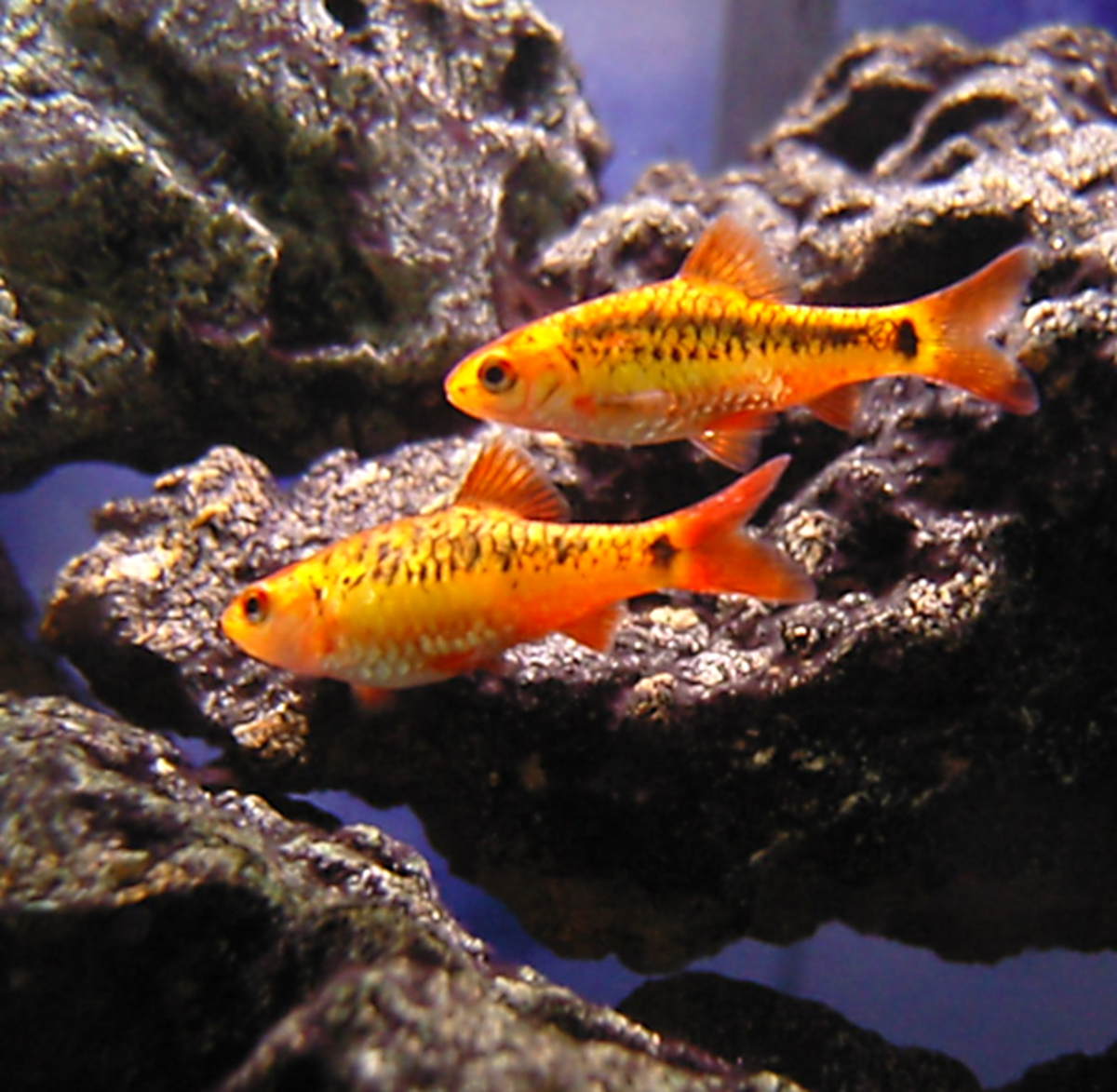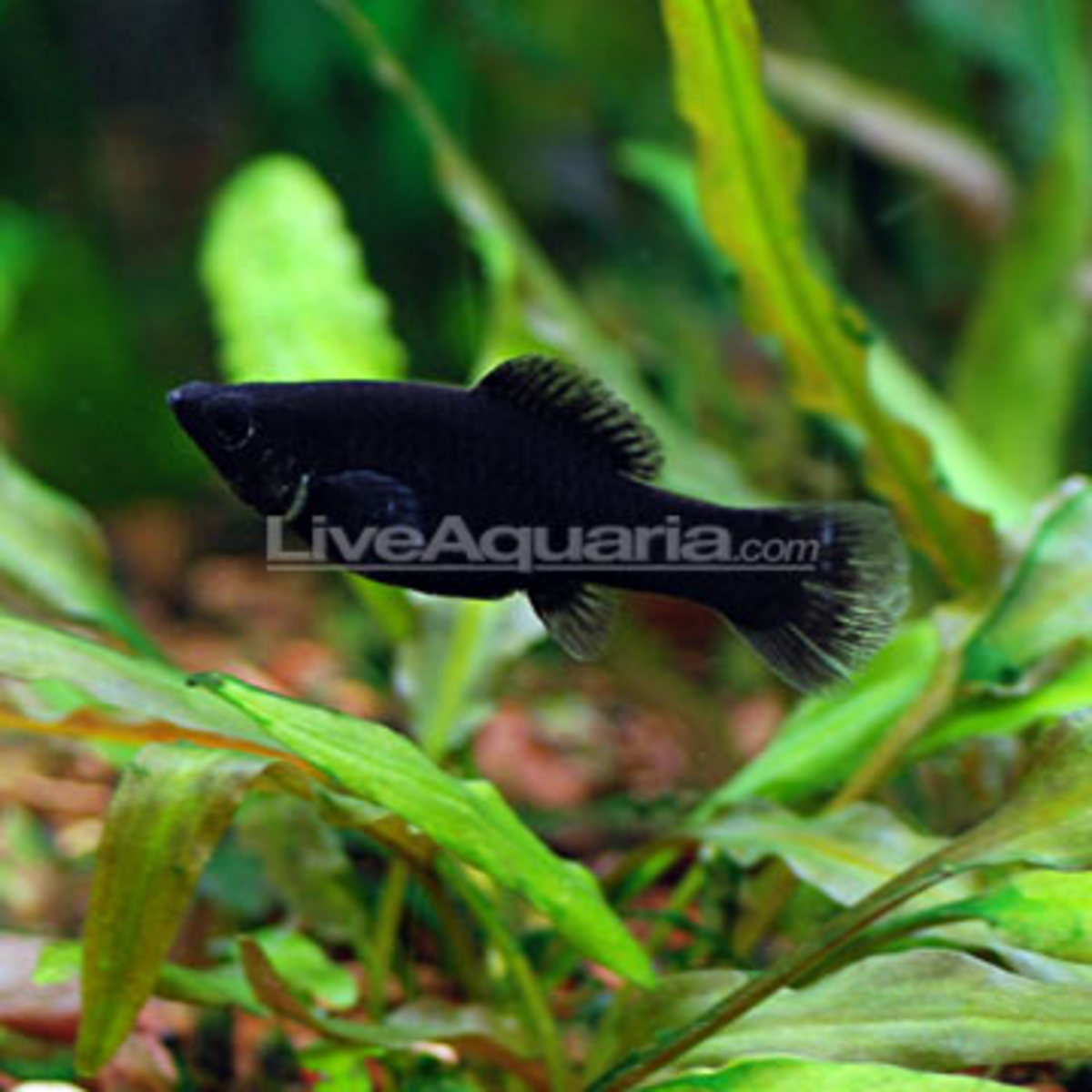Stressed Fish, Symptoms, Causes And How To Treat It
The fish in the aquarium tolerate the artificial environmental conditions under which they live, that are different to the natural habitat in which they should be.
Each fish needs its own space to grow. If this requirement is not fulfilled, then not all the fish will find suitable means to maintain a good health.
Adverse situations provoke stress in the fish.
The reclusion in the small space of an aquarium favors that factors like the quality of the water, states of tension, bad feeding, the relationship with other fish and the manipulation of the aquarist, influence the state of health.
One of the stress causes and therefore of death among the fish is the inadequate acclimatization or too aggressive conditions in the aquarium in which they live. These factors force all the organs of their body to work more to guarantee their survival.

What happens to a stressed fish?
The fish that suffer persistent states of stress, are susceptible of diminishing their defenses against the infections, and getting sick more often.
Other consequences are the reduction of the span of life and the difficulty of reproducing.
Causes
We should look for the causes that can produce stress in the environment that the aquarium offers to the fish.
If we want that the fish are healthy, they should be comfortable. We should provide the fish the best possible conditions, which is achieved keeping in mind some basic few measures.
- Maturation of the aquarium
- Good quality of water
- Compatibility among species
- Good environmental conditions
Maturation
- Bacteria: A recently installed aquarium is not an appropriate environment for the fish, the colony of bacteria that is responsible of transforming the derivatives of nitrogen into nitrites needs time to grow and settle in the filter.
Water
- Water quality: Do not use untreated tap water because it may contain chlorine, toxic element for the fish. The temperature of the water should be the appropriate one for each species, a temperature too hot or cold affects the metabolism of the fish.
- Replacement water: When making the partial replacements of water, the replacement water should be close the same temperature as the water of the tank to not produce an abrupt change.
- Nitrates: Main nitrogen compounds (ammonium, nitrite, nitrate) have different degrees of toxicity and should be maintained at acceptable levels.
- Oxygenation: Low oxygen level in the water can make it difficult for the fish to breathe
Compatibility
- Incompatible species: Mix aggressive fish with fish peaceful cause constants fights.
- Overpopulation: Each fish needs a space and each tank has a maximum capacity. Overpopulation not only causes overcrowding but increases the organic load.
Environment
- Feeding: The diet should be varied and of good quality.
- Decoration: The fish need places where to hide or to rest.
- illumination: The photoperiod should be appropriate for the species that inhabit the aquarium. Not all the fish have diurnal habits.

How to Know if The Fish are Stressed
Can the fish tell us that they don't feel good? Of course, in their own way.
Each fish of our aquarium has habits, either the way to swim, the way to socialize, the feeding habits, the resting places, etc. It is important that we observe and pay attention at the normal behavior of the fish.
The first indication that something is not right in the aquarium will be manifested by a change of behavior of the fish. Some symptoms that may indicate that the fish are stressed are:
- Rejects the habitual food, or it does not eat in the same way as when it had good health
- The fish keeps near the surface with the mouth open to breathe
- Irregular swim
- Isolated or hidden in corners of the aquarium to avoid being seen
- Bitten fins or wounds in the body (is probably suffering aggression from other fish)
- Has a disease: fungi, parasites, etc
- Lack of reaction when catching it with the net





